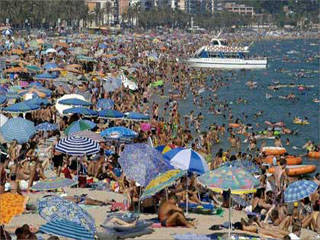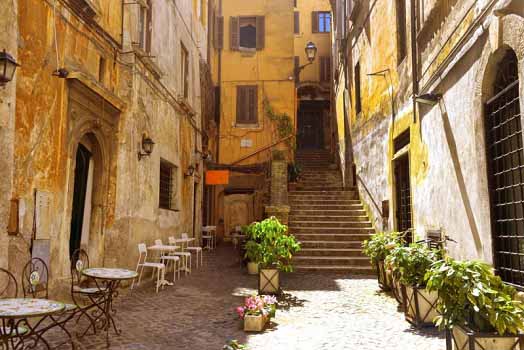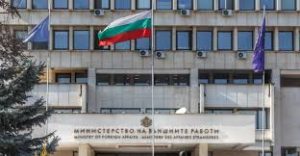Ferragosto: Italy’s summer holiday in August

The beach at Lloret de Mar, province of Girona, on the Catalonian Mediterranean coast, is packed with people on Wednesday, 06 August 2003, trying to find a respite to the heatwave. While the beachgoers enjoyed themselves, thousands of firefighters and ordinary people, about 1,000 vehicles and 42 aircraft or helicopters were working to dampen the fires raging in the country. The Spanish Environment Ministry said most of the wildfires around the country were under control after consuming 27,000 hectares of forest and bush over five days. EPA PHOTO/EFE/ROBIN TOWNSEND
Rome: Italy marks the national holiday of Ferragosto each year on 15 August, the feast of the Assumption, the day when Catholics believe the Virgin Mary ascended to heaven, body and soul, at the end of her earthly life.
The origins of Italy’s Ferragosto, however, date back to Roman times, with the Feriae Augusti introduced as a period of rest by Emperor Augustus in 18 BC.
In the modern-day capital Ferragosto normally means an exodus of Romans as well as the closure of public offices and family-run businesses, restaurants, bars and shops, although larger supermarkets tend to open for a half day.
This year however, due to the covid-19 crisis, things may be busier than usual, as many families can’t afford holidays, or don’t wish to travel, and many restaurants can’t afford to close.

Traditionally Rome residents escape the Ferragosto heat by heading to the beach or the mountains, while those left behind enjoy the city’s peaceful streets and parks, the traffic-free roads and the simple joy of finding a parking place with ease.
With the exception of the Vatican Museums, many of Rome’s museums and archaeological sites will remain open, and the city’s public transport network normally operates according to a reduced “festivi” timetable.





